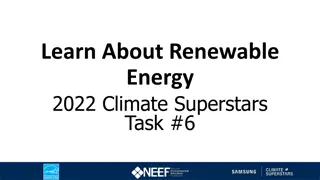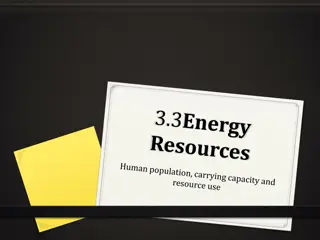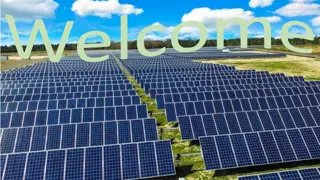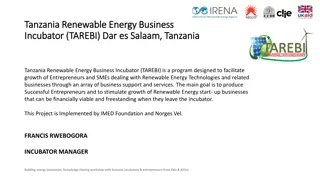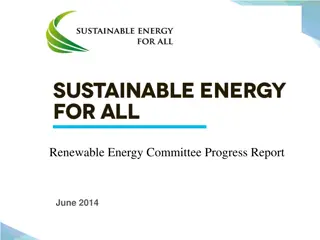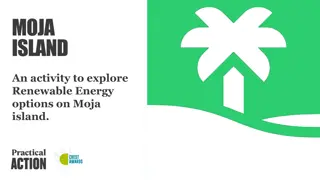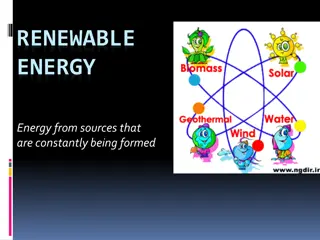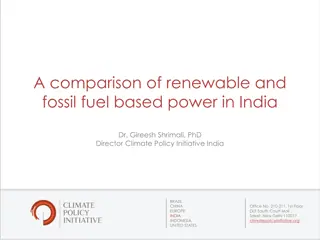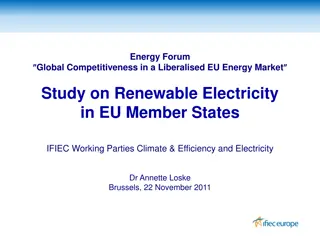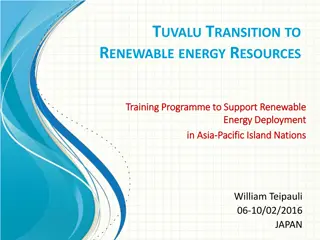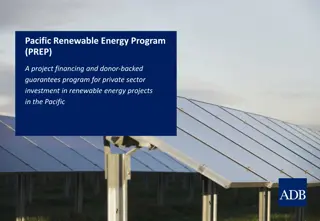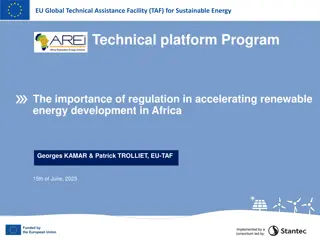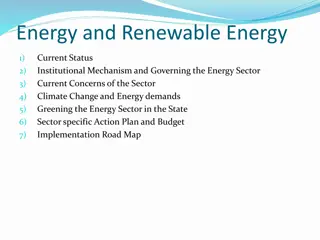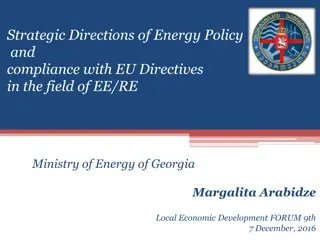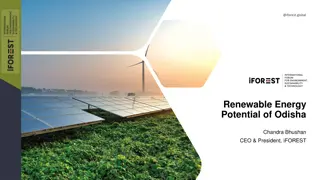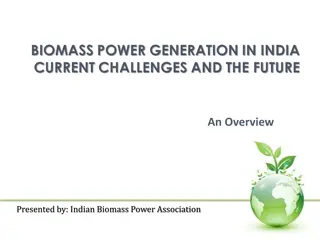Understanding and Engaging Local Power for Renewable Energy Development
South Africa faces challenges in engaging local communities for renewable energy projects, risking harm and exacerbation of social issues. Skilled responsivity and intentional community development are key to maximizing the potential of renewable energy initiatives like REIPPPP. The concept of local power emerging through community involvement needs strategic understanding and engagement for successful outcomes.
Download Presentation

Please find below an Image/Link to download the presentation.
The content on the website is provided AS IS for your information and personal use only. It may not be sold, licensed, or shared on other websites without obtaining consent from the author. Download presentation by click this link. If you encounter any issues during the download, it is possible that the publisher has removed the file from their server.
E N D
Presentation Transcript
Working with a different kind of power: community, responsive practice and renewables Sue Soal WINDAC Africa, 31 October 2016
REIPPPP community benefit requirements An unprecedented development opportunity Unleashing local power But, the HOW of people-engagement not addressed in an informed or systematic way
While the case for renewables is established - Technologically - Economically - Financially - Scientifically - Politically It is not so well established socially and politically at local levels, at least in not SA
The South African community context Structural inequality and continued social exclusion, echoing Apartheid s patterns. Widespread, growing contestation around governance in all forms, at all levels. Civic institutions with strong expressive abilities but poor absorption and administrative capacity.
This creates potential problems, that might be avoidable Doing more harm than good
Weaker impact (inadequate) Seepage, loss of resources, poor administration (unfortunate) Exacerbation of existing social and political difficulties (damaging) Igniting of volatile responses (calamitous)
How might local power, as it emerges through the vehicle of 'community , be best understood and engaged, towards maximising the potential of the REIPPPP requirements?
Experience suggests intentional development of institutional practice characterised by skilled responsivity
Skilled Responsivity #1 A conceptual approach to 'community' and community development a reading, a vision, a strategy, a practice, methods and feedback loops and appropriate resourcing to accomplish this.
this might include - PRACTICE as a rich and layered resource Approach Methods Skills STRATEGY as being informed by A reading Vision Objectives (reached mutually)
with Iterative mechanisms for learning and change
Skilled Responsivity #2 working with power working in relationship
this might include The Development Cycle: Relationship Understanding Intervention Implementation Review (those iterative mechanisms again) (Community Development Resource Association)
Skilled Responsivity #3 Engaging seriously with institutions as mechanisms for resource distribution.
this might include Protecting institutional assets, building social capital and contributing to long term legacy through working with local and other institutions.
Implications for how the work looks from the outside Organic and unique solutions that develop over time and might change, depending on context and outcomes of relational work with others.
Implications for how the work looks from the inside Feedback at the centre, rather than simple compliance Centrality of voice of those in the field Organisational capacity to change direction.
Less control, less linear roll-out (a bit like working with renewable sources of energy?) more working responsively with the power as it is, and as it flows.
Without which, the risk of contributing to outcomes that might be - Inadequate, unfortunate , damaging or calamitous.


